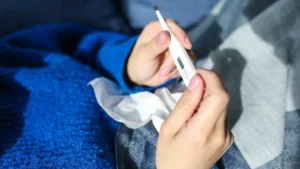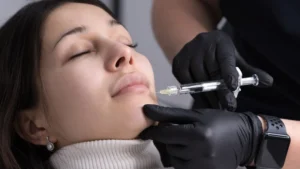Dealing with lice on brushes is a common concern that affects many of us. Lice, those tiny insects that can infest our hair and personal items, are not only bothersome but also easily spread. Imagine finding these unwanted guests on your brushes. That’s where the question arises: Does boiling water kill lice on brushes?
Understanding how to effectively eliminate lice from brushes is essential to maintain personal hygiene and prevent lice from spreading to others. In this article, we’ll explore whether boiling water can be a solution to this problem and discuss alternative methods to keep your brush lice-free. Let’s discover the truth and find practical ways to tackle this issue head-on.
Lice and Their Survival
Lice are tiny insects that can infest hair and personal items, causing discomfort and concern. These minuscule creatures come in three stages: eggs, nymphs, and adults. Understanding their life cycle helps us combat them effectively.
Life Stages of Lice
- Eggs (Nits): Lice eggs are attached to hair shafts near the scalp. They look like tiny oval-shaped particles, often mistaken for dandruff.
- Nymphs: Once eggs hatch, nymphs emerge. They resemble adult lice but are smaller and grow by molting several times.
- Adult Lice: Fully grown, adult lice are about the size of a sesame seed and have six legs. They feed on blood and move quickly.

How Lice Survive
Lice survive by feeding on blood from the scalp and are well adapted to their environment. They attach their eggs to hair shafts, close to the scalp, for warmth and a steady supply of blood.
Read Also:Can Blow Drying Hair Cause Dandruff?
Lice spread primarily through head-to-head contact, making schools and households common places for infestations. Lice cannot jump or fly but can crawl from one hair strand to another.
Does Boiling Water Kill Lice on Brushes?
Dealing with lice on brushes demands effective solutions. Boiling water is a common method considered for its potential to eliminate these pesky insects. Let’s delve into whether boiling water can truly be a lice-killing remedy.
The Science Behind Boiling Water
Boiling water generates high heat, which has the potential to eradicate lice and their eggs. Lice are sensitive to extreme temperatures, and subjecting them to boiling water can disrupt their delicate balance and cause their demise.
Optimal Temperature and Duration
To effectively kill lice and their eggs, the water needs to reach a temperature of around 130°F to 140°F (54°C to 60°C).
It’s essential to maintain this temperature for a duration of at least 5 minutes to ensure thorough elimination.
Read Also: Is Menopausal Hair Loss Permanent?
Safety Precautions
- Handle with Care: Boiling water can cause burns. Always handle hot water with caution.
- Material Suitability: Be mindful of the brush’s material. Boiling water might damage certain types of brushes.
Effectiveness Considerations
While boiling water can be a potent method, it might not reach all lice hiding spots on the brush. The bristles, especially densely packed ones, could shield some lice from the heat.
Moreover, this method only addresses lice on the brush and not potential infestations on the scalp.
The Pros and Cons of Boiling Water Treatment
Using boiling water to treat lice on brushes comes with both advantages and disadvantages. Let’s examine these aspects closely to make an informed decision.

Pros of Boiling Water Treatment
1. Effective Lice Elimination:
Boiling water, when applied correctly, can kill lice and their eggs due to the high temperature that lice cannot endure.
2. No Chemicals:
Boiling water is a chemical-free approach, making it suitable for those who prefer natural methods.
3. Affordability:
Boiling water is readily available and cost-effective, requiring minimal additional expenses.
Cons of Boiling Water Treatment
1. Incomplete Eradication:
Boiling water may not reach all areas of the brush, especially if the bristles are tightly packed, leaving some lice and eggs untouched.
2. Potential for Damage:
Some brushes, particularly those made of delicate materials, may be susceptible to damage from boiling water.
3. Limited Preventive Impact:
Boiling water treatment addresses lice on brushes but does not prevent future infestations or address lice on the scalp.
4. Safety Concerns:
Handling boiling water requires caution to avoid burns or accidents.
Read Also: Remedy for Hair Fall and Hair Growth
Preventing Lice Infestations
Preventing lice infestations involves adopting smart practices to safeguard yourself and your surroundings from these unwelcome pests. Let’s delve into effective preventive measures to keep lice at bay.
Maintaining Personal Hygiene
1. Regular Hair Washing:
Keep your hair clean by washing it regularly. Lice prefer clean hair, but maintaining cleanliness can help prevent their infestation.
2. Personal Items:
Avoid sharing personal items like combs, brushes, hats, and hair accessories, which can contribute to the spread of lice.
Mindful Activities
1. Head-to-Head Contact:
Minimize head-to-head contact with others, especially in environments like schools and social gatherings.
2. Checking for Lice:
Periodically check for lice or nits in your hair, particularly if you’ve been in close contact with someone who has lice.
Household Measures
1. Cleaning and Disinfecting:
Regularly clean and disinfect items that come in contact with your head, such as pillowcases, beddings, and hats.
2. Vacuuming
Vacuum your living spaces, including upholstery and carpets, to eliminate any potential stray lice or fallen nits.
School and Community Awareness
1. Informing Schools:
If your child has lice, inform their school so preventive measures can be taken to avoid spreading.
2. Educating Others:
Educate friends and family about the importance of prevention to collectively reduce lice occurrences.
Conclusion
In the battle against lice on brushes, knowledge is a powerful tool. We’ve explored the potential of boiling water as a method to eliminate lice, along with its pros and cons.
While boiling water can be effective when used correctly, it’s essential to weigh its limitations and consider alternative approaches.
Preventing lice infestations takes priority. Regular hair washing, avoiding sharing personal items, and practicing cautious behaviors can significantly reduce the risk.
By incorporating hygiene practices at home, informing schools, and educating others, we contribute to a lice-free environment.
Remember, a comprehensive approach is key. Combining knowledge about lice, their lifecycle, and effective prevention strategies equips us to make informed choices in the ongoing fight against lice infestations.
FAQs about Dealing with Lice on Brushes
1. Can boiling water kill lice on brushes?
Boiling water can be effective in eliminating lice and their eggs from brushes if the correct temperature and exposure time are maintained.
2. Are there risks to using boiling water on brushes?
Yes, certain brush materials might be damaged by boiling water, and safety precautions should be taken to prevent burns or accidents.
3. Is boiling water treatment suitable for all brushes?
Boiling water treatment might not be suitable for brushes made of delicate materials that could be damaged by heat.
4. Can I solely rely on boiling water to prevent lice infestations?
While boiling water can help eliminate lice on brushes, a comprehensive prevention strategy involves personal hygiene and avoiding head-to-head contact.
5. What other methods can complement boiling water treatment?
Using lice-killing shampoos, special combs, and freezing brushes can complement boiling water treatment.
6. How can I prevent lice infestations at home?
Regularly clean and disinfect personal items, vacuum living spaces, and educate family members about preventive measures.
7. Are lice only spread through direct contact?
Yes, lice primarily spread through head-to-head contact, making it crucial to minimize such interactions.
8. Can lice infestations lead to secondary skin infections?
Yes, excessive scratching due to lice bites can lead to skin irritation and potential secondary infections.
9. Is seeking professional advice necessary for severe infestations?
Yes, consulting a healthcare professional can provide guidance for severe or persistent lice infestations.
Medical References
- Centers for Disease Control and Prevention. “Head Lice: Diagnosis.” Retrieved from CDC.
- Meinking, Terri L., et al. “Infestations.” In Dermatology: 2-Volume Set, 3rd Edition, 2012.
- Burgess, Ian F. “Human lice and their management.” Advances in Parasitology 68 (2008): 27-63.
- Frankowski, Barbara L., and Joseph A. Bocchini Jr. “Head lice.” Pediatrics 135.5 (2015): e1355-e1365.
- Pollack, Richard J., et al. “The diagnosis and management of head lice.” New England Journal of Medicine 346.25 (2002): 1645-1650.
- Stone, Melanie F., and Dale R. Gerke. “Treatment of pediculosis capitis.” American Family Physician 94.10 (2016): 791-793.



